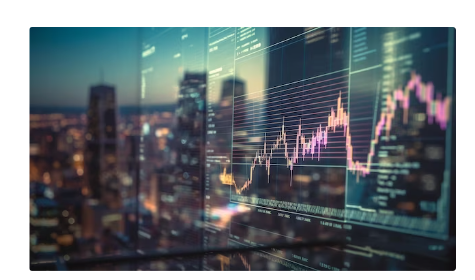Trading: An In-Depth Exploration
Trading is a complex financial activity that involves the buying and selling of various financial instruments with the primary objective of making a profit. It is a fundamental component of global financial systems and plays a pivotal role in shaping the dynamics of economies worldwide. Traders engage in the trading of a wide array of assets, including but not limited to stocks, bonds, commodities, currencies (commonly referred to as forex), and cryptocurrencies.
Key Aspects of Trading
Trading encompasses several crucial elements that are integral to its functioning:
- Financial Instruments: Traders have the option to choose from a diverse range of financial instruments, each of which possesses its own unique characteristics and risk profiles. These instruments serve as the foundation for trading activities and include equities, fixed income securities, derivatives, and alternative investments.
- Markets: Trading occurs on various markets, including traditional stock exchanges, commodity markets, foreign exchange markets, and digital asset exchanges. Each market has its specific attributes and participants, and they are subject to varying degrees of regulation.
- Analysis: Successful trading often hinges on the application of in-depth analysis. This includes technical analysis, which involves the study of price charts, indicators, and patterns; fundamental analysis, which entails the assessment of economic indicators, company financials, and geopolitical events; sentiment analysis, which involves evaluating market sentiment and news sentiment; and quantitative analysis, where mathematical models and statistical tools are used to make trading decisions.
- Strategies: Traders employ different trading strategies tailored to their objectives and timeframes. These strategies can range from day trading, where positions are opened and closed within the same trading day, to swing trading, scalping, algorithmic trading, and high-frequency trading. Algorithmic trading strategies include arbitrage, trend following, and market making.
- Risk Management: Effectively managing risk is a critical aspect of trading. Traders employ risk management tools such as stop-loss orders, take-profit orders, trailing stops, and position sizing to safeguard their capital and limit potential losses. Risk assessment, including understanding volatility and market conditions, is vital in this context, and risk management extends to managing portfolio diversification and correlation.
- Brokerage Accounts: To gain access to financial markets, traders typically open brokerage accounts through which they can place orders, manage their portfolios, and access trading platforms. Brokerage selection is an important decision for traders, as it impacts fees, execution speed, the available range of assets, and the quality of research and trading tools provided.
Types of Traders
The trading community comprises various types of traders, each with their own unique goals and timeframes:
- Day Traders: Day traders execute trades within the same trading day, aiming to profit from short-term price fluctuations. They closely monitor intraday price movements and may make multiple trades in a single session. Day trading strategies include scalping, momentum trading, and statistical arbitrage.
- Swing Traders: Swing traders maintain positions for several days or weeks, seeking to capture medium-term price swings. They often use technical and fundamental analysis to identify potential opportunities and set entry and exit points. Swing trading can involve trend following, mean reversion, and pattern recognition.
- Position Traders: Position traders adopt a longer-term perspective, holding positions for months or even years. Their trading decisions are often based on fundamental analysis, economic trends, and global events. Position sizing and risk management are critical considerations for position traders, and they may engage in thematic investing and macro trading strategies.
- Scalpers: Scalpers specialize in making rapid, small trades, aiming to profit from minimal price fluctuations within a single trading session. Scalping requires quick decision-making, precise timing, and the ability to react swiftly to changing market conditions. Scalpers may focus on specific markets like the forex market and cryptocurrency exchanges.
- Algorithmic Traders: Algorithmic traders rely on automated trading algorithms to execute trades based on predefined criteria and signals. They utilize computer programs to analyze market data, identify trading opportunities, and execute orders swiftly. Algorithmic trading is a complex field that combines programming, data analysis, and financial expertise. High-frequency trading (HFT) is a subset of algorithmic trading characterized by extremely rapid order execution.
- Options Traders: Options traders focus on trading options contracts, which give them the right, but not the obligation, to buy or sell an underlying asset at a predetermined price. Options trading involves various strategies, such as call and put options, spreads, straddles, and butterflies. Options traders may use options for speculation, hedging, or income generation.
- Cryptocurrency Traders: Cryptocurrency traders specialize in the trading of digital assets like Bitcoin and Ethereum. Cryptocurrency markets operate 24/7 and are known for their high volatility. Traders may engage in spot trading, margin trading, and derivative trading in the crypto space.
- Commodity Traders: Commodity traders focus on trading physical commodities such as oil, gold, and agricultural products, as well as commodity futures and options contracts. They often monitor supply and demand dynamics, geopolitical events, and commodity-specific factors.
Conclusion
Trading is a multifaceted and dynamic pursuit that demands a combination of knowledge, skill, and discipline. Participants in the trading arena must be acutely aware of the inherent risks and should formulate well-structured trading plans to enhance their probability of success in the financial markets. Continuous learning and adaptability are essential traits for traders, as financial markets evolve and new opportunities and challenges arise. Successful trading requires a comprehensive understanding of the factors that influence market movements and the ability to make informed decisions in a dynamic and often unpredictable environment.

